Today, more and more investors are turning to artificial intelligence (AI) to help them make better decisions when it comes to stock trading. AI has been used in financial markets for years, but its use is now becoming increasingly prevalent in the investment industry. Through AI-based algorithms, traders are able to accurately predict price movements and take advantage of market opportunities. This article will explore how artificial intelligence can improve investment strategies and how it can be leveraged by stock traders.
Automated Trading Systems
The first way that AI can be used in stock trading is through automated trading systems. These programs are designed to generate buy and sell signals, based on predetermined parameters like price, volume, news sentiment, economic data and other indicators. The trader then executes the order according to the signal generated by the system. This takes out most of the emotional element of investing which often leads to costly mistakes for inexperienced traders, allowing for a more disciplined approach that seeks out profitable trades with minimal effort.
AI can also be useful for portfolio optimization. By using advanced analysis techniques such as machine learning or natural language processing (NLP), AI can detect patterns in historical data sets and recommend suitable securities from an investor’s available universe of assets that will maximize their return while minimizing risk. Historical data sets need not even include only stocks; many sector-specific funds have successfully used AI to pick out winners from a large range of assets such as mutual funds and ETFs as well as traditional equities.
AI and Big Data
More sophisticated applications of AI come when it is used in combination with big data – huge sets of financial information gathered from corporate reports, analyst estimates and other sources that allow machines to drill down into diverse asset universes while finding correlations between them all near instantaneously – feeding predictive analytics models to identify potential future trends before they occur so that you can act on them quickly enough to beat everyone else to market profits. Some technology firms are now offering products where hedge fund managers can leverage these technologies which enables them brush up their game both defensively and offensively when it comes protecting or increasing their investments against market volatility.
Finally, AI can be utilized by retail move investors like those on a Robinhood account who have limited tools at their disposal compared with some institutional players due to fewer resources available .Brokers offer platforms so users can build custom equity portfolios depending upon desired time frames goals or risk portfolios instead of having generate trades casually throughout the day/week towards marginful success is far greater than we ever expected before this list advances in computing power popped up over recent years
Conclusion
It seems clear that there is no limit on how much artificial intelligence could help improve stock trading strategies going forward. As companies continue development of new technologies within this field – deploying predictive analytics algorithms, leveraging big data insights or utilizing machine learning systems – they will be able provide investors with powerful tools capable real-time analysis across vast asset classes worldwide significantly improving potential returns if also monitored properly with each particular investment strategy itself implemented too. Besides this long term focus makes sure you keep your eye on the prize however best advice still remains though taking calculated risks all times at one point other because even best artificial intelligence tools still have their shortcomings regardless!”












